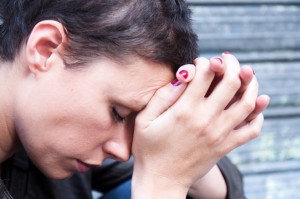Alcohol and Migraines
Migraines are severe headaches that may last for a period of hours or days. Migraines are a recurrent throbbing headache that typically affects one side of the head and is often accompanied by nausea and disturbed vision. The symptoms can incapacitate the migraine sufferer, who may need to lie down in a dark space until the headache has passed. Nausea and vomiting are side effects of severe migraines.
Migraines may be induced by triggers. Triggers for migraines can include anything from stress, to hunger, fatigue, and menstruation. Diet can also trigger migraines and alcohol is one of those things in someone’s diet that can cause migraines. Although, the underlying cause of migraines is unknown but they are believed to be related to a mix of environmental factors such as diet, lifestyle etc. and genetic factors.
So what about alcohol and migraines?
Alcohol is a common trigger in migraine sufferers for a couple of different reasons. First of all, alcohol is known as a vasodilator. This means that it causes the blood vessels in the body to dilate, or expand. This is what causes the reddening of the face in an individual who has been drinking. Dilation of the blood vessels in the brain is through to be the cause of a migraine, so this response to alcohol may trigger a migraine in individuals who are prone to migraines. Even a small amount of alcohol may cause the blood vessels to dilate.
There are also substances in alcoholic beverages that some people are more sensitive to. One of these substances is the amino acid tryramine – a well-known trigger for migraine or cluster migraines. Tyramine is found in red wine and champagne, as well as dark alcoholic beverages like scotch, beer, and bourbon.
Congeners, a chemical found in some alcohols, can also cause migraines in some individuals. Congeners are believed to trigger migraines because they make slight changes to the chemical composition of the body. Hard liquors, especially darker, amber liquors, usually contain more congeners than lighter liquors. Individuals who are sensitive to sugar may get a migraine due to the high sugar content in alcohol. Some alcoholic beverages use artificial sweeteners, like aspartame, which cause migraines in some people.
Ethanol has a diuretic effect on the body, causing it to produce more urine. This excess urination causes dehydration, which contributes to the symptoms of a hangover which can include migraines. Getting migraines is a common symptom that many drinkers experience after a night of excessive drinking. One way to prevent this from happening is to drink plenty of non-alcoholic beverages during the day if you know you’ll be drinking that night.
The best bet if you get migraines is to avoid alcohol all together because alcohol and migraines do not mix well because of the multiple migraine trigger substances within alcohol. Not just that but because of the dehydration alcohol causes. If you want to drink and are prone to migraines it is best to only drink small amounts and to stay hydrated.


